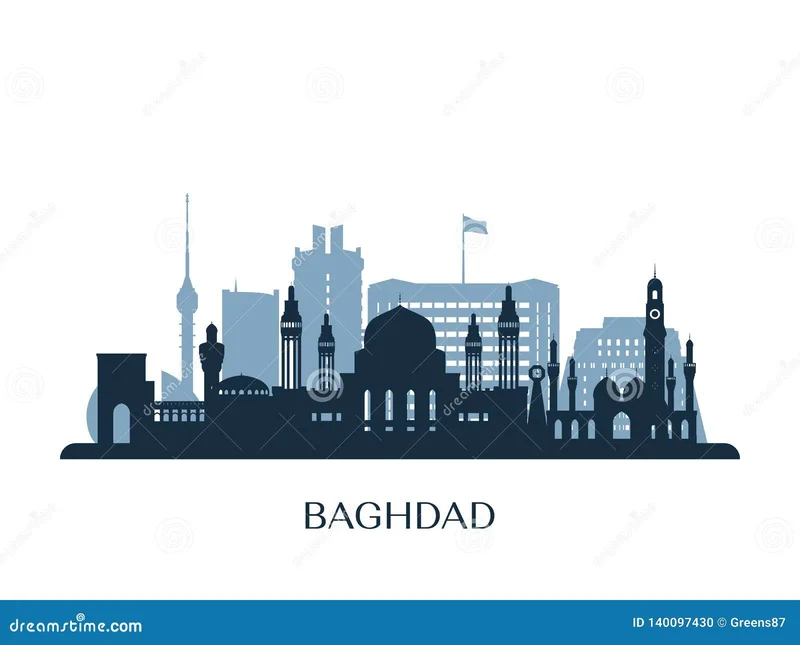Iraq's "Iraq First" Strategy: A Blueprint for Global Stability in 2050?
From Baghdad to the World Stage: A New Vision
Imagine a world where nations prioritize collaboration over conflict, where ancient civilizations become hubs of innovation, and where the pursuit of stability isn't just a dream, but a concrete plan. That's the ambition driving Iraqi Prime Minister Mohammed Shia al-Sudani's "Iraq First" strategy and his broader "Vision 2050." It's not just about Iraq; it's about a potential blueprint for global stability, and honestly, the audacity of it all is incredibly exciting.
Sudani, as reported by The Man Who Wants to Make Iraq Great Again, is aiming to transform Iraq into a global hub for trade, investment, and innovation. It’s a bold move, especially considering the country's tumultuous past. He's drawing on Iraq's rich history, pointing to the Code of Hammurabi as an example of the nation's enduring legacy of innovation and resilience. Can Iraq, a nation synonymous with conflict for so long, really become a model for peace and prosperity? It seems like a wild proposition, but what if it actually works?
The "Iraq First" motto, while echoing Trump's "America First," has a different flavor here. It's about prioritizing the Iraqi people after decades of strife, from wars to insurgencies. Sudani envisions Iraq becoming first in security, stability, development, and services. It's a vision of national revival, capitalizing on the defeat of ISIS to steer the country away from conflict and towards progress. He even sees the U.S. as a valuable ally in this quest, particularly under a leader who prioritizes economic development. The potential here is enormous, and frankly, I'm getting goosebumps just thinking about it.

But how does Sudani plan to achieve this ambitious vision? His "Vision 2050" rests on six pillars: pioneering digital breakthroughs, capitalizing on the population's potential, creating fair governance, emphasizing independence in political decisions, and building a flexible, oil-independent economy. The implementation of Iraq's first comprehensive census since 1987 is a tangible step in this direction. He's also pushing for projects like the "Development Road" to connect the Persian Gulf to Europe, and rebranding Iraq as a tourism destination. The scale of this vision is breathtaking, and the potential impact is even more so.
Of course, the path won't be easy. The region remains volatile, with tensions between the U.S. and Iran, and the ever-present threat of conflict. As tensions soared, with the U.S. issuing a “final warning” to Iraq over armed groups, Sudani found himself in a precarious position, balancing competing interests. Yet, he's managed to navigate these challenges, maintaining a "positive neutral position" and refusing to be forced to choose sides. He sees Iraq as a potential mediator, a nation that can help de-escalate tensions and promote regional stability. This is more than just political maneuvering; it's a strategic vision with the potential to reshape the entire Middle East.
And what about the ethical considerations? As we embrace these technological advancements and strive for global stability, we must also be mindful of the potential consequences. How do we ensure that these technologies are used for good, and not for harm? How do we protect individual privacy and freedom in an increasingly interconnected world? These are questions we must grapple with as we move forward, and I believe that open dialogue and collaboration are essential to finding the right answers.
Iraq: A Beacon of Hope?
Sudani's vision faces significant hurdles, but the potential rewards are immense. Can Iraq truly transform itself into a beacon of stability and prosperity? Can it become a model for other nations to follow? Only time will tell. But one thing is certain: Sudani's "Iraq First" strategy and his "Vision 2050" offer a glimpse of a brighter future, a future where collaboration triumphs over conflict, and where ancient civilizations rise again as global hubs of innovation. And that, my friends, is a vision worth fighting for.
